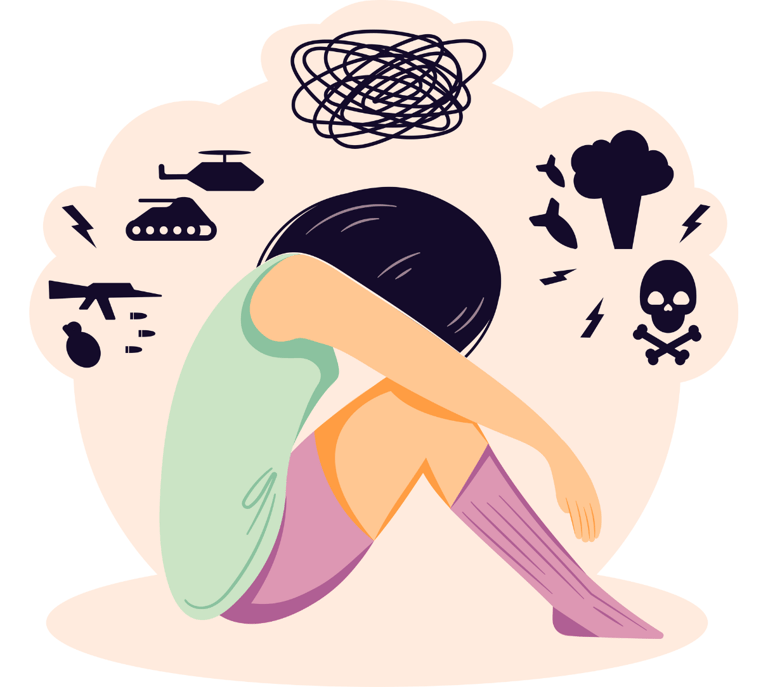Coping with Vicarious Trauma in the Social Media Age: Strategies for Mental Well-being
In our interconnected world, social media serves as a powerful platform for sharing news and updates. However, the constant exposure to distressing events, particularly violence and conflict, can take a toll on our mental health. This blog post explores the concept of vicarious trauma and provides practical strategies for coping with its effects, especially in the context of social media exposure. From setting boundaries to seeking support and engaging in self-care, discover actionable steps to safeguard your mental well-being and foster resilience in the face of adversity.
Usman Khan
3/12/20242 min read


In today's interconnected world, social media has become a powerful tool for sharing information and connecting with others. However, with the constant stream of news and images flooding our feeds, many of us find ourselves exposed to the harsh realities of violence and conflict happening around the globe. While it's important to stay informed, constant exposure to traumatic events can take a toll on our mental health, leading to what is known as vicarious trauma.
Vicarious trauma occurs when individuals experience emotional distress and psychological symptoms as a result of indirect exposure to traumatic events. This can be particularly challenging in the context of violence stemming from war, where the impact extends far beyond the immediate victims to encompass entire communities and even those thousands of miles away. Whether you belong to the affected community, are part of the diaspora, or simply empathize deeply with the suffering of others, the effects of vicarious trauma can be profound.
So, what can you do to cope with the mental health challenges associated with vicarious trauma, especially in the context of exposure through social media? Here are some strategies to consider:
Set Boundaries: While it's important to stay informed about world events, it's equally important to recognize your limits. Set boundaries around your social media usage and be selective about the content you consume. Consider unfollowing accounts or muting keywords that consistently share distressing news.
Practice Self-Care: Engage in activities that nourish your mind, body, and soul. Whether it's exercise, meditation, spending time in nature, or pursuing creative hobbies, prioritize self-care to recharge and replenish your emotional reserves.
Seek Support: Don't hesitate to reach out to friends, family members, or mental health professionals for support. Talking about your feelings and experiences can help alleviate the burden of vicarious trauma and provide a sense of connection and understanding.
Limit Exposure: If certain images or stories trigger intense emotional reactions, consider limiting your exposure to them. Use content warning filters or opt to hide graphic content on social media platforms to protect your mental well-being.
Practice Mindfulness: Cultivate mindfulness techniques to help ground yourself in the present moment and manage overwhelming emotions. Techniques such as deep breathing, progressive muscle relaxation, and guided imagery can help alleviate anxiety and promote relaxation.
Engage in Activism: Channel your feelings of empathy and solidarity into meaningful action. Whether it's volunteering with humanitarian organizations, participating in advocacy efforts, or donating to relief efforts, taking tangible steps to support affected communities can empower you and foster a sense of hope and resilience.
Stay Informed Responsibly: Be mindful of the sources you rely on for news and information. Seek out reputable sources that provide balanced and accurate coverage of world events, and take breaks from consuming news when needed to protect your mental well-being.
In conclusion, navigating the mental health impact of vicarious trauma in the context of exposure through social media can be challenging, but it's not insurmountable. By setting boundaries, practicing self-care, seeking support, and engaging in meaningful action, you can protect your mental well-being and cultivate resilience in the face of adversity. Remember, you are not alone, and it's okay to ask for help when you need it. Together, we can create a more compassionate and empathetic world, one where the voices of the marginalized and the suffering are heard and honored with dignity and respect.
Socials
Subscribe to our newsletter
Images obtained from www.freepik.com


